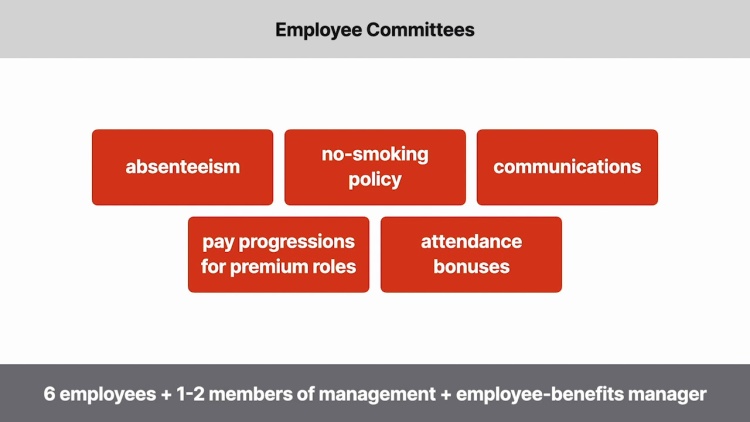Electromation, Inc.
National Labor Relations Board
309 N.L.R.B. 990 (1992)
- Written by Tammy Boggs, JD
Facts
Electromation, Inc. (defendant) manufactured electrical components and had about 200 employees. Due to financial losses, Electromation changed certain employment policies and reduced employee benefits. Employees were dissatisfied with these changes as well as other employment issues. Electromation’s management came up with the idea of implementing “action committees” in five categories, including “absenteeism/infractions” and “attendance bonus program.” Employees could sign up to participate in the committees and propose suggestions on policy changes that would be necessary due to the company’s financial troubles. The action committees met weekly in the employer’s conference room, they discussed their ideas in the presence of one or more management representatives, and some committees developed proposals for management’s consideration. Meanwhile, a labor union (the union) (plaintiff) sought to gain recognition by Electromation. Some of the action committees continued to meet. The union initiated an administrative proceeding before the National Labor Relations Board (the board). The judge found that the action committees were labor organizations under the National Labor Relations Act and that Electromation engaged in an unfair labor practice by dominating and assisting the committees. The board reviewed the matter.
Rule of Law
Issue
Holding and Reasoning (No information provided)
Concurrence (Oviatt, Member)
Concurrence (Devaney, Member)
What to do next…
Here's why 899,000 law students have relied on our case briefs:
- Written by law professors and practitioners, not other law students. 47,000 briefs, keyed to 994 casebooks. Top-notch customer support.
- The right amount of information, includes the facts, issues, rule of law, holding and reasoning, and any concurrences and dissents.
- Access in your classes, works on your mobile and tablet. Massive library of related video lessons and high quality multiple-choice questions.
- Easy to use, uniform format for every case brief. Written in plain English, not in legalese. Our briefs summarize and simplify; they don’t just repeat the court’s language.





